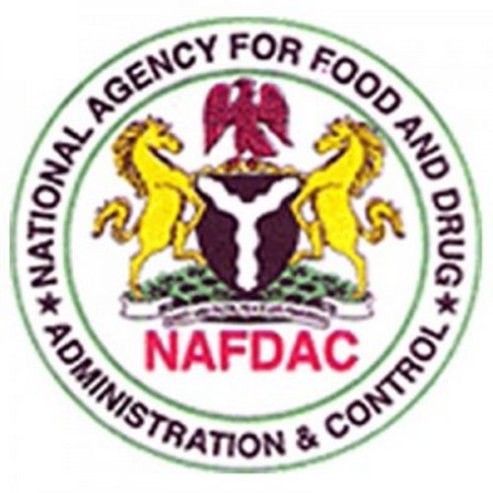Highly Hazardous Pesticides Banned In Europe Flourish In Nigeria-Report
LAGOS MAY 14TH (NEWSRANGERS)-A STUDY conducted by Heinrich Boll Foundation has revealed that some hazardous pesticides banned in Europe are being used in Nigeria despite attempts by the National Agency for Food and Drug Administration and Control (NAFDAC) to clamp down on the importation of harmful chemicals into the country.
The report stated that Nigeria imports 147,446 tonnes of pesticides annually, more than the total imports of Southern Africa, 87,403 tonnes, and North Africa, 109,561 tonnes.
However, the report further noted that despite the increasing imports, the informal nature of agricultural production in the country has made it difficult to record how pesticides are used.
“Surveys have shown that 80 per cent of the pesticides used most frequently by small-scale farmers are highly hazardous pesticides. Among the most commonly used are atrazine, chlorpyrifos and mancozeb – all of which are prohibited in the European Union,” the report said, adding that 58 per cent of the existing pesticides in the country are already banned in Europe.
The report noted that it is illegal to purchase, sell, import, transit, transport, deposit and/or store any banned or obsolete chemical or any other form of waste in the Nigeria territory or water.
The banned pesticides are prevalently used for agricultural commodities produced like cassava, yam, maize, fruits, cocoa, beans, among others.
Responding to the report’s findings in a statement released on May 7, the Director General of NAFDAC Mojisola Adeyeye stressed that the agency is set to ban another 12 pesticides and agrochemical active ingredients in the country.
The NAFDAC boss called for the cooperation of stakeholders and the general public to rid the country of hazardous pesticides.
According to her, pesticides are applied both indoors and outdoors for the management of pests, vector-borne diseases, and crop protection.
Adeyeye emphasised that some pesticides are impregnated in textiles, paints, carpets, and treated wood to control pests and fungi.
She expressed concerns about the toxicity associated with the misuse and abuse of pesticides as it affected food safety and security.
“There was also an alert received from the Federal Ministry of Agriculture and Rural Development, cautioning on the possibility that the European Union and the United Kingdom were exporting banned neonicotinoid pesticides to Nigeria and other poorer countries.
“Emphasis was placed on chlorpyrifos and its variants due to their harmful effects on humans, animals, beneficial insects, and the environment.”
Adeyeye lamented the rising increase in the use of European-banned pesticides in Nigeria.
“This necessitated the review and analysis of the list of registered pesticides and agrochemical active ingredients in the NAFDAC registered product automated database vis-à-vis actives banned, non-approved.”
Adeyeye said the aim of the agency is to safeguard the health of the nation.
She disclosed that the review meeting focused much on the proposed phase-out/ban of these active ingredients and it had in attendance proponent holders of marketing authorisations and NGOs.
“At the end of the meeting, it was agreed that pesticides and agrochemical importers and manufacturers would be advised to institute stewardship plans such as post-marketing surveillance and research in their companies.”
Adeyeye stated that NAFDAC would collaborate with research institutes in the conduct of research and scientific data generation on pesticides to enable the Agency to make evidence-based decisions and policies.
The NAFDAC boss said that the agency would further intensify post-marketing surveillance nationwide, as well as sensitisation and education of relevant stakeholders on the responsible use of pesticides.
She added that NAFDAC would collaborate with sister agencies like the Federal Ministry of Agriculture and Rural Development, the Standards Organisation of Nigeria, the National Environmental Standards and Regulation Enforcement Agency and the Nigeria Agricultural Quarantine Service.
NAFDAC had earlier phased out 30 hazardous pesticides from the Nigerian market, including Aldrin, Binapacryl, Monocroptophos, Mirex, Ethylene, Dichloride Fluoroacetamide, and Chlorobenzilate.
The ICIR had, in a report titled “Death in small doses: How food vendors, fruit sellers, farmers poison Nigerians with agrochemicals’, exposed the continuing use of some chemicals which were banned due to their unsafe nature.
The report stated that fruit, fish and meat sellers and farmers flagrantly use the chemicals to ripen or preserve their goods. They adopt the banned pesticides to maximise profit, without having regard for the health of the consumers.
Further findings by The ICIR indicated that the banned pesticides, fungicides, herbicides and other chemicals were available in the market.
The report observed that the chemicals are used on foods such as grains, cereals, legumes, and are later taken to the market against the approved duration when the potency of the chemicals should have worn off.
The ICIR’s findings further show that although the administration of some of the chemicals is allowed at permissible levels for food storage to avoid post-harvest losses, those who administer the chemicals on the food items are untrained.
Reacting to the findings of the recent study by Heinrich Boll Foundation in an interview with The ICIR, a Medical Consultant, Obstetrics and Gynecology, at Wuse District Hospital, Abuja, Ifiok Ikpe, stressed the need for NAFDAC to recall pesticides that are banned and dangerous to human health.
Ikpe spoke of the need for NAFDAC to strengthen the implementation of its regulations to curb the production of locally banned pesticides, and cease the importation of foreign banned ones.
ICIR
Short URL: https://newsrangers.com/?p=107531






























